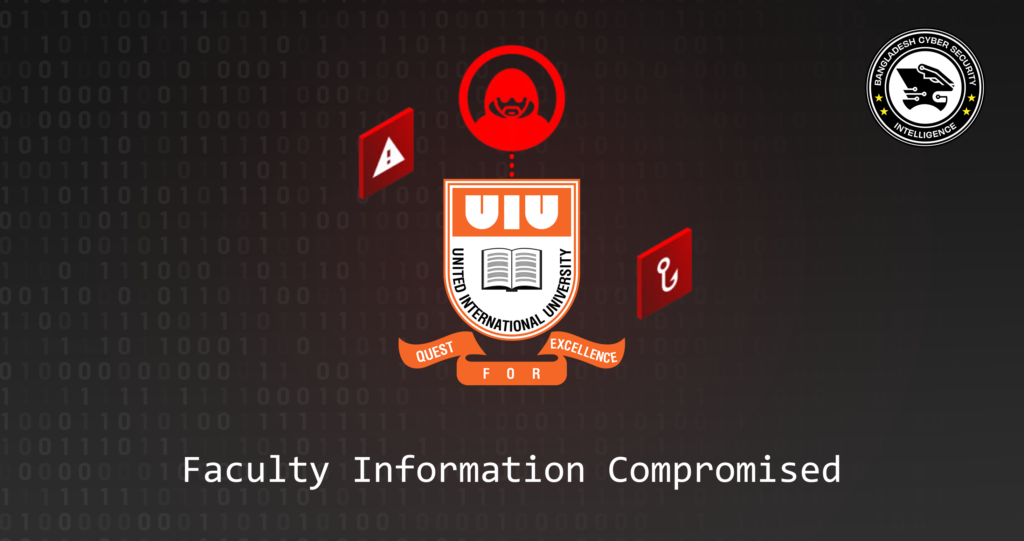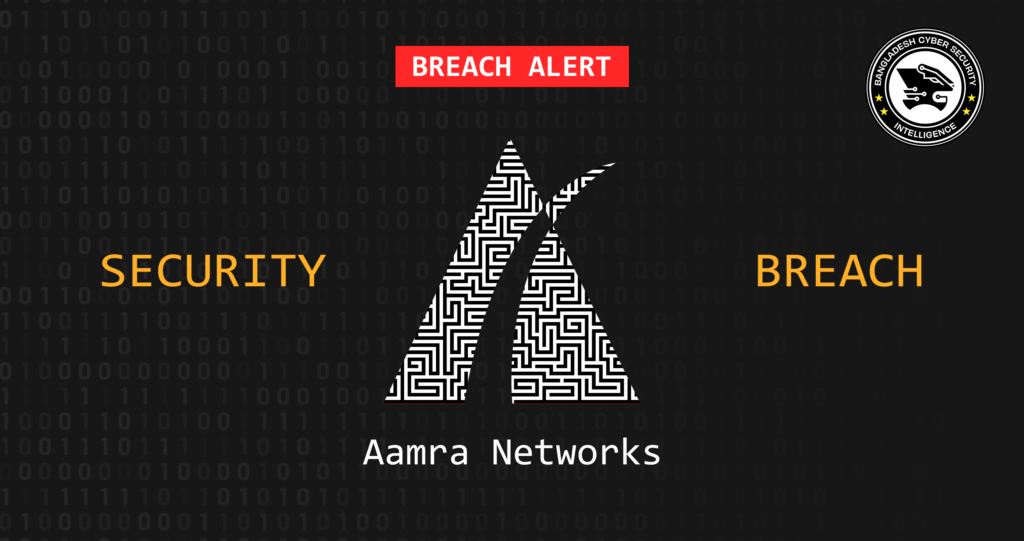
Incident Overview:
Recently, the United International University of Bangladesh was thrust into the spotlight due to a concerning incident: the compromise of faculty information. On February 26, 2024, an individual using the alias “Nooblesec” claimed responsibility for leaking sensitive faculty data on a prominent hacking forum. This disclosure has triggered widespread alarm within the academic community and raised urgent questions about the university’s cybersecurity measures.
Nature of the Breach:
The breach involved the unauthorized access and dissemination of faculty information, the specifics of which are yet to be fully disclosed. However, such breaches typically involve the compromise of personal and professional data, including names, contact details, academic credentials, and potentially sensitive information. This breach highlights the vulnerability of educational institutions to cyber threats and underscores the importance of safeguarding digital assets.
Implications of the Breach:
The implications of this breach are far-reaching and multifaceted. First and foremost, there are significant privacy concerns for the affected faculty members, whose personal information may now be exposed to malicious actors. Moreover, the breach jeopardizes the integrity and trust of the university community, including students, staff, and alumni. Additionally, there may be legal and regulatory repercussions for the university, depending on the severity of the breach and its compliance with data protection laws.
Mitigation Strategies:
In response to this breach, the United International University of Bangladesh must undertake immediate and comprehensive mitigation strategies. This includes conducting a thorough investigation to assess the extent of the breach and identify the root causes. Simultaneously, the university should prioritize transparent communication with all stakeholders, providing regular updates on the situation and steps being taken to address it.
Moving forward, the university should implement robust cybersecurity measures to prevent similar incidents in the future. This may involve enhancing network security, implementing multi-factor authentication, encrypting sensitive data, and providing cybersecurity training for faculty and staff. Collaboration with cybersecurity experts and regulatory authorities can also help strengthen the university’s defenses and ensure compliance with data protection regulations.
Conclusion:
The breach of faculty information at the United International University of Bangladesh serves as a stark reminder of the persistent threat posed by cyberattacks in the education sector. It underscores the need for continuous vigilance and investment in cybersecurity measures to safeguard sensitive data and protect the trust of stakeholders. By addressing vulnerabilities, implementing mitigation strategies, and fostering a culture of cybersecurity awareness, the university can fortify its defenses and mitigate the risks of future breaches. In doing so, it can uphold its commitment to providing a safe and secure learning environment for all members of its community.


